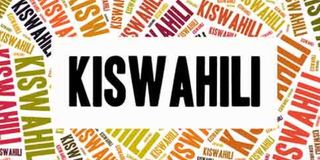Uganda adopts Kiswahili as EAC official language

Kiswahili, the language of Swahili people, is spoken by more than 200 million people around the world.
What you need to know:
- Kiswahili, the language of Swahili people, is spoken by more than 200 million people around the world.
- In 2021, it received its biggest boost yet when the United Nations Educational, Scientific and Cultural Organization (Unesco) designated July 7 as World Kiswahili Language Day.
- It’s already a national and official language in Kenya and Tanzania and one of four national languages in DRC, the latest EAC member state.
Uganda has adopted the resolution by the East African Community (EAC) to make Kiswahili an official language for the bloc alongside English.
The Ugandan Cabinet on Monday nodded to the implementation of the directive made during the 21st EAC extraordinary summit in Dar es Salaam in February 2021.
During the summit, heads of states amended Article 137 of the bloc’s treaty to introduce the lingua franca as an alternative language for transacting EAC’s official business.
Consequently, the government of President Yoweri Museveni has recommended compulsory teaching of Kiswahili in primary and secondary schools in Uganda.
“It was further agreed that training programmes for Parliament, Cabinet and the media be initiated,” Dr Chris Baryomunsi, Uganda's minister for ICT and National Guidance, said.
That move is likely to bring to an end the age-old joke that “Kiswahili was born in Zanzibar, grew up in mainland Tanzania, fell sick in Kenya, died in Uganda, and was buried in Democratic Republic of Congo”.
And with Uganda government’s commitment to institutionalise the language, public perception and buy-in remain the biggest hurdles in the country where English is the official language.
Since 1970s, Ugandans have associated Kiswahili with death and destruction following human rights abuses and other atrocities meted out during Idi Amin’s dictatorship and civil wars.
Amin spoke and supported the language in his rebellion against colonialists whom he had vowed to “teach a lesson”.
Some of his soldiers used the language as they unleashed terror on Ugandans, hence the dark memories among Kiswahili opponents.
Kiswahili, the language of Swahili people, is spoken by more than 200 million people around the world.
In February this year, the African Union adopted Kiswahili as one of its official working languages, three months after the United Nations Educational, Scientific and Cultural Organization (Unesco) designated July 7 as World Kiswahili Language Day.
It’s already a national and official language in Kenya and Tanzania and one of four national languages in DRC, the latest EAC member state. It is also spoken by nearly 50 and 70 per cent of the general public in Rwanda and Burundi, respectively.
A product of the fusion of Bantu and Arabic dialects, Kiswahili is not only recognised as a unifying language spoken by East Africans but it is rich in dialect and expression. The language is used for social interaction and trade in many urban centres in EAC member states.
Kampala’s decision comes almost five years after the EAC Council of Ministers directed partner states to formulate national Kiswahili language policies and enhance the use of the language in official domains.
The council in April 2017 also asked member states to initiate institutionalisation of Kiswahili by setting up national Kiswahili councils and national Kiswahili associations.
Article 119 of the EAC Treaty provides for the development and promotion of indigenous languages, especially Kiswahili, as lingua franca.
The adoption of Kiswahili as the second official language is set to not only boost the unity of the bloc but also deepen and widen integration.
Embracing the language at the regional level will also increase people’s participation in the affairs of the community.
Beyond East Africa, Kiswahili has spread on the continent and is widely spoken in Zambia, Malawi, Mozambique, Madagascar and the Comoros Islands .
In June 2020, South Africa introduced Kiswahili as an optional subject in the hope that the language could become a tool to foster cohesion among Africans.
According to Global Voices—an international multi-lingual organisation of writers, translators, academics and digital rights activists—currently, there are more than 7,100 languages spoken around the world, 28 per cent of which are spoken on the African continent.
Despite the existence of some 2,140 local languages in Africa, English, French and Arabic reign supreme. English on the other hand dominates online spaces in the region.
But this has shrunk to between 51-55 per cent as opposed to 80 per cent on online dominance two decades ago. Projections indicate that Kiswahili, which is now online, will become an increasingly important instrument of trade.
Kiswahili is taught in universities around the world, including in China, while in the USA, an estimated 100 universities offer Kiswahili courses, including Harvard University.
Additional report by Job Bwire in Kampala.





